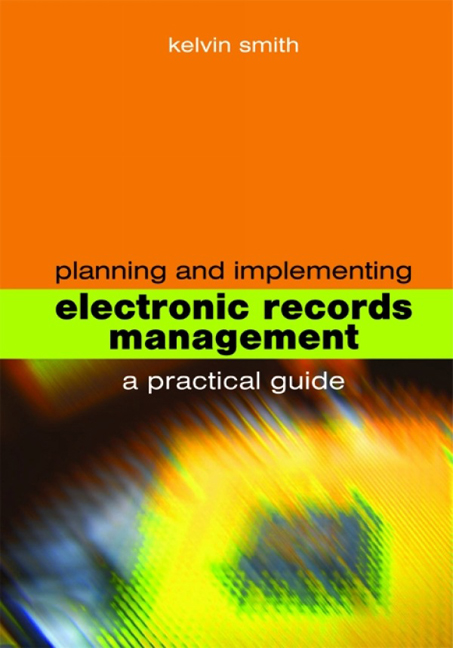3 - Making a business case for ERM
from Part 1 - Preparation
Published online by Cambridge University Press: 08 June 2018
Summary
This chapter examines the procedures required to make a business case for electronic records management. It makes a couple of assumptions – that the underlying principles described in Chapter 1 are more or less in place in the organization and that the context or functional analysis described in Chapter 2 has been completed (the report of which will form an annex to or part of the business case itself).
Introduction
Top managers and financial directors in all organizations need to be convinced that it is worth committing resources or spending large sums of money on projects such as electronic records management before they will give them their blessings. The business case, therefore, is a crucial document. Before committing anything to paper (or screen!), you need to be clear about the purpose and objective of the business case. The purpose is to set out all the implications for the organization in going ahead with such a project, while the objective is to gain organizational commitment to this. It should not be limited to gaining permission to take a longer look at the suggestion to introduce electronic records management; it needs to be stronger than that.
All business cases should cover the following points:
• what is the current situation on records and information management?
• why should the organization go ahead with the project?
• what will happen if the organization does not go ahead with the project?
• what are the alternatives (if any)?
• what is happening in records and information management in similar organizations in the same sector?
• what are the benefits accruing from the project?
• what is the cost of the project?
• what demands on other organizational resources will there be?
While business cases are very individual documents and will vary greatly according to the organizational context, much can be learnt from the experiences of other organizations that have gone through the process of planning and implementing electronic records management systems. It is worthwhile investigating to see if any case studies are available and whether any work undertaken by others might be reused or modified for your own purposes.
Who will undertake the compilation of the business case? Consider whether it might be undertaken by one person or a project team (the size of the organization will usually be a determining factor). Whoever it is, particular skills and knowledge will be required.
- Type
- Chapter
- Information
- Planning and Implementing Electronic Records ManagementA practical guide, pp. 35 - 54Publisher: FacetPrint publication year: 2007



